Apidura Racing Saddle Pack
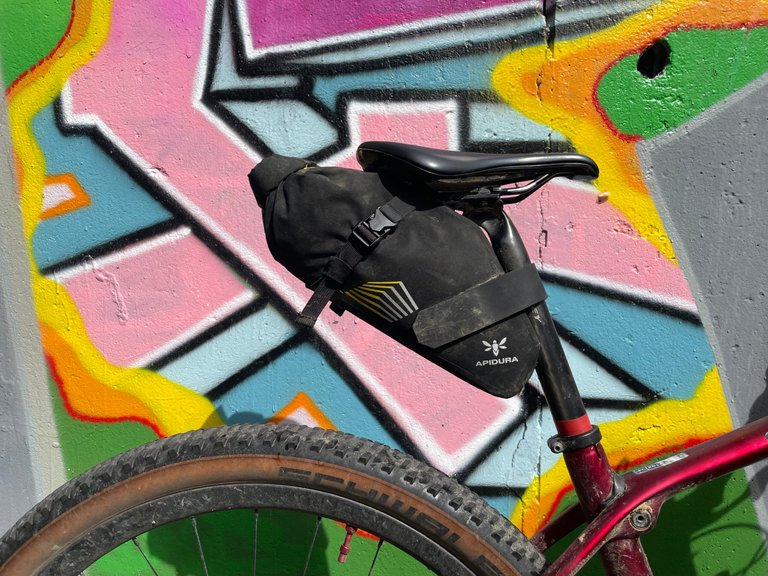
Saddlebags from Apidura in the “Racing” version do not offer as much volume as other options. They are intended for minimalists who do not need much and are willing to pay extra for minimal weight.
I own the 5 and 7-litre versions, which weigh 200 and 210 grams, respectively. The designs are identical, differing only in size. Apidura states the same frame compatibility. You need at least 18 centimetres of space between the saddle and tyre and at least 5 centimetres of the exposed seat post.
Apidura later added a 3-liter version which weighed 170 grams.
The bag is made of waterproof material. Reflective elements on the sides ensure good visibility at night. The rear features a mounting system commonly used for attaching a tail light.
Real Experience
The positioning of the bag on the bike is great, especially for off-road routes. Saddle bags are often designed to be mounted just under the saddle and extend far back. The design of the Apidura bag mounts it as low as possible. This results in:
- The weight of the bag is closer to the centre of gravity, so it doesn’t sway. With a minimal volume, this likely wouldn’t be an issue anyway.
- It doesn’t hinder you when moving your weight backwards during steep descents. This is invaluable.
- It’s easier to get on the bike. You won’t have to perform an acrobatics movement to put your leg over the saddle. You’ll appreciate this only after several days of continuous riding.
This system also has some disadvantages. It is not compatible with a dropper post and does not function as well as a mudguard.

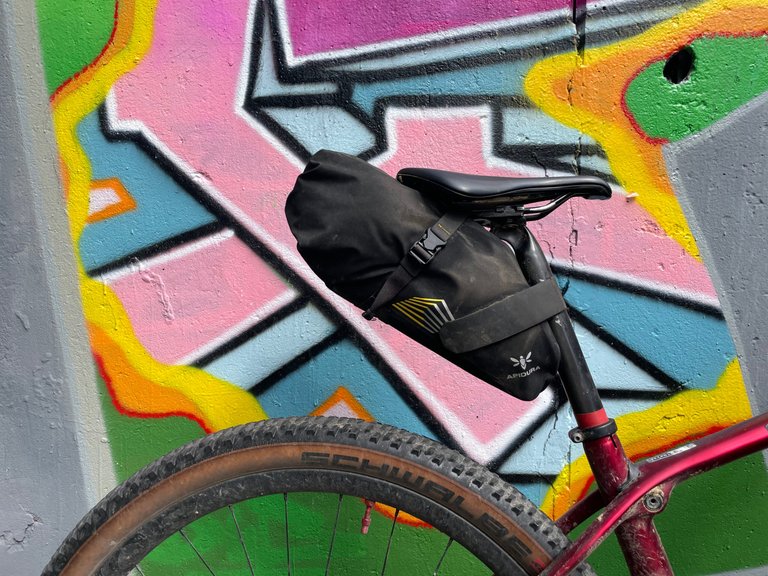
An interesting solution is the air release valve: there isn’t one. There is a special design, that protects against water ingress from the direction of the rider, but elsewhere it’s just regular fabric without waterproof properties. There’s no risk of forgetting to close the valve. On the other hand, the bag won’t survive being submerged in a river. During regular rides, I haven’t had water enter the bag.
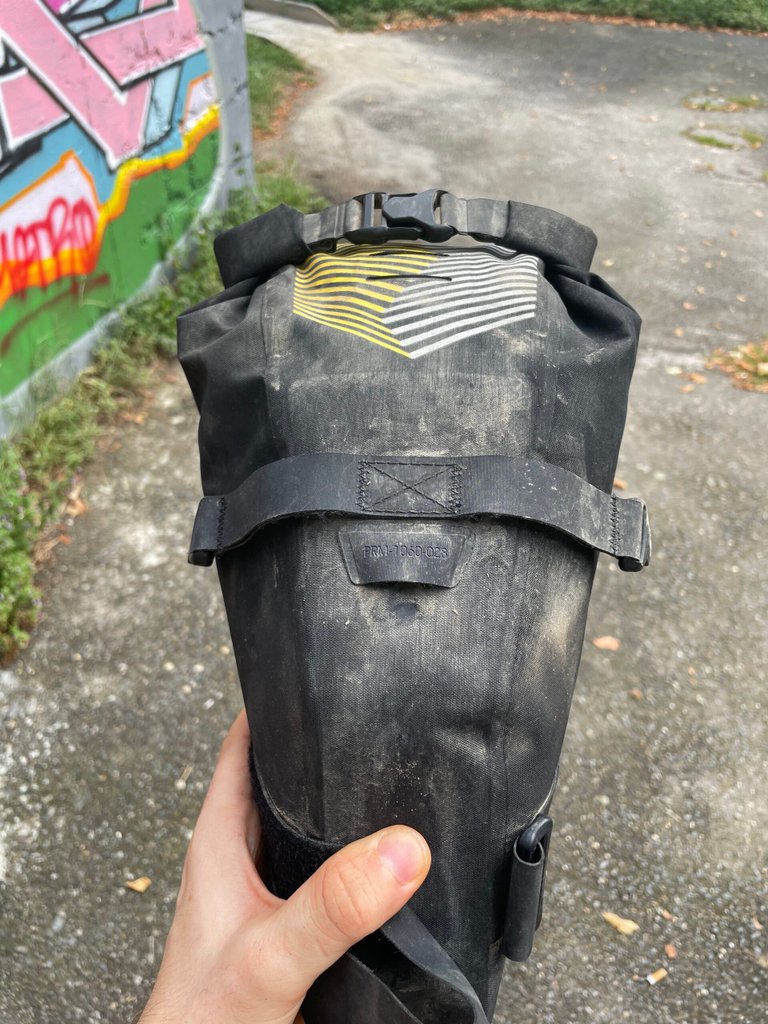
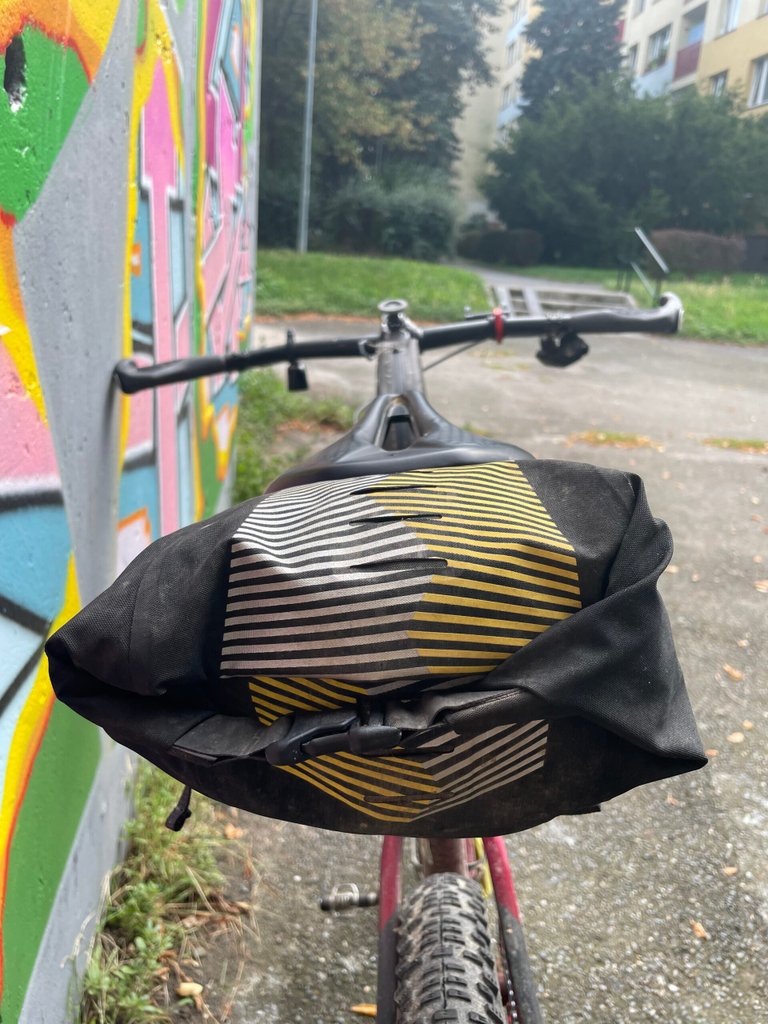
Space in the Bag
The bag is small, so not much fits inside. It has a tapered profile at the front (especially in the smaller variants), where an air pocket can form. That’s why I usually put a pair of socks or gloves in first, followed by a sleeping bag, which wouldn’t fill the gap.
Apidura doesn’t specify how many times the bag should be rolled, but the instructional video suggests three times. What fits inside? I first tried the 5-litre variant and packed:
- A pair of socks
- Sleeping bag (weighing 350 g)
- Waterproof gloves
- Merino shirt
In the 7-liter variant, I packed all that and still had room for:
- Tilak Vega waterproof jacket (200 g)
- NeoAir UberLite inflatable sleeping pad
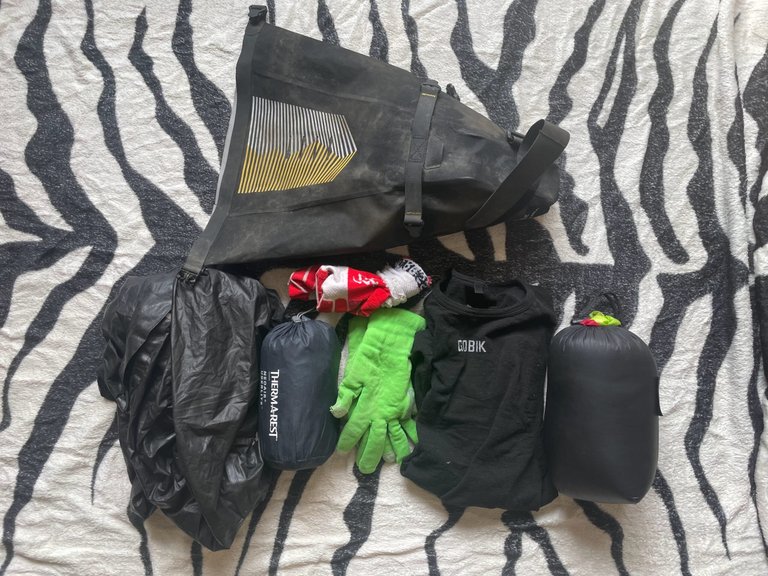
Summary
I have had the bags for one year, and so far, they do not show significant signs of wear. The material tends to hold onto dirt, but this shouldn’t be an issue unless you are very particular. I recommend them primarily for off-road riding because I hardly notice the bag while riding. However, in the event of a fall while fording, a wet sleeping system could be quite painful.
| Volume | Weight | Price |
|---|---|---|
| 3l | 170g | 134€ |
| 5l | 200g | 151€ |
| 7l | 210g | 163€ |
Advantages
- Waterproof
- Good for offroad riding
- Lightweight
Disadvantages
- Air valve can't be closed
Overall rating: 4.7/5
Published | #Bikepacking
💬 No comments yet
What are your thoughts? 🤔 Feel free to ask any questions 📫